As you all know, the only way to prevent contracting any disease, including COVID, is to develop strong immunity against it. Immunity is a series of steps your body takes to destroy a threat. Basically, when a foreign body called antigen enters your system, your body activates immunity cells called B Lymphocytes. B lymphocytes produce antibodies and send both the antibodies as well as T lymphocytes to attack and destroy the threat. The antibodies stay in your system and if that particular germ enters your body again, you won’t be affected.
Now this concept is at the core of herd immunity. We have often heard that herd immunity is the only way to stop the COVID pandemic. But what is herd immunity and will India be able to develop it?
When a huge percentage of the population has developed antibodies against a disease, then that population has herd immunity. It is also termed as mass immunity. When herd immunity is developed, an outbreak dies out gradually. Even though some people may not have the required immunity, the population or herd is immune. Even if the herd is exposed to the disease again, the rate of infection would be very low.
Herd immunity is very important in diseases like covid which was once an epidemic as it makes it possible to protect the population from a disease including the ones who are very vulnerable and can’t be vaccinated like the immunocompromised and the newborns.
Dr. Ashish Bajaj, M.B.B.S., M.D. in Clinical Pharmacology and Toxicology
There are two ways to attain herd immunity-
As we explained earlier, when a virus enters your body, your immunity will produce antibodies to kill the virus. Once you’ve contracted the infection, your body will remember the antigens, and the risk of contracting again is very low.
If most of the people of the country have fallen sick because of COVID, they will develop immunity against it. And fresh exposure would not be a threat to them. Once they are immune, they will not pass on the disease to people of that country who have not developed an immunity. So even non-immune people would be relatively safe.
Vaccines introduce the antigen of the virus into the body in very small doses. You will not fall sick, but your immunity will become familiar with the antigen and develop antibodies. Herd immunity can be reached when the population has been vaccinated.
I personally feel after 3 waves and millions of infections and crores of vaccination, India might have developed herd immunity. Unless a major mutation in virus is there, unlikely there will be another wave.
Dr. M.G. Kartheeka, MBBS, MD(Pediatrics)
Herd immunity through exposure will only slow down the rate of infection and the RO (number of people an infected person passes the disease to). It may take many months before COVID is wiped out if we rely on exposure to build immunity. Vaccination puts an immediate end to a pandemic.
Most Indian doctors and healthcare experts are vehemently opposed to the idea of natural herd immunity by exposing people to COVID. Even epidemiologists never considered natural herd immunity as an effective way to end a pandemic like Small Pox or the Spanish Flu.
Why are they so reluctant to let India acquire immunity through exposure? Because the risk is just too high. COVID is dangerous and has claimed millions of lives. Hundreds of thousands of people in our country have comorbidities such as diabetes, asthma, or hypertension, making a COVID infection lethal.
Encouraging India to develop natural herd immunity would put the lives of these people in danger. Besides, studies have found that COVID antibodies last only for 5-7 months.
However, developing herd immunity through vaccination is feasible. That is what epidemiologists have relied on in the past as well. Only when every single person has been vaccinated, India will acquire immunity.
That is why doctors want you to stay at home as much as possible. Do not try to attain natural herd immunity as you will be risking the lives of your loved ones as well as your own. Follow the COVID protocol at all times.
Most of us look forward to winter. It is a season of festivities, delicious foods, cosy woollens, and blankets and it also brings a break from the terrible Indian summer. But this year, winter might not be a cause for celebration. In fact, scientists and healthcare experts are saying that the upcoming months are likely to make the COVID pandemic more severe.
India has just started flattening the curve. Infection rates are slowly decreasing. According to surveys, we reached a peak in late September. But all those advances may be reversed this winter.
Here are a few reasons why you need to be alert and cautious this winter –
The metro cities of India practically become gas chambers during winters. Pollution levels rise during these months because cold air is dense and moves sluggishly. That means polluted air cannot be blown away quickly. PM2.5 is lethal for your respiratory health. It enters the alveoli of your lungs and damages them. This weakens the lungs. Now, under these circumstances, if you contract COVID, you would be more likely to develop a serious lung infection.
Diwali is no longer just about lighting up our homes with diyas, fairy lights or LED candles. Now it has become more about setting off fireworks. Studies have found that exposure to fumes emitted by fireworks increases oxidation in the body. Oxidation can quickly kill healthy cells in your respiratory system. Moreover, fireworks contain metal particles like lead and can have a horrible impact on your throat and respiratory tract within seconds of breathing them in. Your respiratory health will be compromised to a great extent.
We’re sure that there aren’t many of you who can claim that you never catch the flu or common cold during the winter. What you may not know is that they can weaken your body. Common cold or flu is caused by a virus. Your immune system has to work hard to kill the viruses and many of your immunity cells die in the line of duty. It takes time for your body to produce fresh immunity cells. While your immunity is down, you are more likely to contract COVID.
The pandemic has been a part of our lives for many months now, and the extreme caution people had taken in the early stages is wearing out. Now that the news about the decreasing COVID infection rates has reached the people, many people are no longer bothering to wear masks or maintain basic COVID hygiene. This will not only increase their risk of catching this virus but yours as well.
To safeguard yourself and your country –
Let us all be alert and follow COVID guidelines until the vaccine is ready. This winter season can be as fun as the previous years, but only if we are responsible.
The one thing certain people love to do when something of huge significance happens is spread fake news through social media! And such practices have been rampant during the COVID pandemic. This has resulted in common people developing many misconceptions about the virus and some of these myths can actually be very dangerous.
Let us look at some prevalent misconceptions about COVID-19

Besides, every COVID vaccine has been tested on millions of people and only when the reports came back satisfactory, was the decision to launch taken.
If people begin to believe COVID myths, then they will not take the right action at the right time. If they test positive, instead of seeking a doctor’s advice or opting for hospitalization, they may want to try medicines or methods that can’t actually cure them. Valuable time will be wasted and lives could be lost.
Draw your information and knowledge from reputed sources. If you receive random COVID information in the form of messages from unverifiable sources, do not share or forward without confirming the news first. We all have to play a proactive part in preventing this menace.
Disclaimer: The information provided here is for educational/awareness purposes only and is not intended to be a substitute for medical treatment by a healthcare professional and should not be relied upon to diagnose or treat any medical condition. The reader should consult a registered medical practitioner to determine the appropriateness of the information and before consuming any medication. PharmEasy does not provide any guarantee or warranty (express or implied) regarding the accuracy, adequacy, completeness, legality, reliability or usefulness of the information; and disclaims any liability arising thereof.
Links and product recommendations in the information provided here are advertisements of third-party products available on the website. PharmEasy does not make any representation on the accuracy or suitability of such products/services. Advertisements do not influence the editorial decisions or content. The information in this blog is subject to change without notice. The authors and administrators reserve the right to modify, add, or remove content without notification. It is your responsibility to review this disclaimer regularly for any change
A number of vaccines, including 2 in India, are in the 2nd and 3rd phases of human trials. But our patience is wearing out. In the midst of all this gloom, US pharmaceutical giant Pfizer surprised everyone by announcing that its vaccine candidate will be marketed by December 2020 or January 2021 tops. Here’s what we know about the situation so far.
Pfizer and its German partner BioNTech began human trials in June this year. Since then the vaccine has been tried on 44,000 in different stages. Officials at both pharmaceuticals have said that trials went on as expected and there were no set-backs. They expect the results of the trials to be in by the 3rd week of November. If everything is positive and there does not need to be a tweak in the formulation, Pfizer will apply for emergency authorization of the vaccine.
Pfizer has said it would immediately roll out 40 million doses as soon as regulatory bodies give them the green light.
Scientists are skeptical and feel that Pfizer is rushing in order to stay ahead of its nearest competitors Moderna and AstraZeneca and be the first pharma to launch a COVID vaccine. For example, Pfizer will only wait for 32 infections among the 440,000 people it has tested the drug on before they analyze the results. Whereas Moderna and AstraZeneca will only carry out the first-look analysis after 53 and 75 cases have been confirmed in their trial groups respectively. This would give them a larger data pool to understand if there are any shortcomings with their vaccine.
The world will soon find out how effective the Pfizer vaccines will be. We will want to carry out our own analysis as well for getting the corona vaccine in India. If Indian scientists are satisfied, then the government may approach the pharma giant for collaboration. But even if results are not satisfactory, we needn’t worry because we have already tied up with AstraZeneca and our indigenous vaccines Covax and Zydus Cadila have shown promising results. Everyone is hopeful that the vaccines will be ready by March 2021.
In the meantime, what we can do is maintain COVID protocol and follow all hygiene guidelines. We need to stay at home as much as possible and if we step out, we need to wear masks and use sanitizers. Remember, we might have to wait for months before we get vaccinated. Even if the vaccine is available by March 2021, only frontline workers will be eligible for it. So let us all be patient and carry on with the COVID precautions.
The COVID-19 threat hasn’t receded yet. We understand that our valued customers are fearful about the virus reaching their homes when a technician arrives to collect a sample. But diagnostic tests cannot be halted because your health and well-being depend on the detection and management of an illness. That is why we want to assure you that we have strictly implemented the COVID-19 protocol recommended by WHO for sample collection.
The Technician has to: Wear a face mask at all times.
Maintain strict hand hygiene which includes:
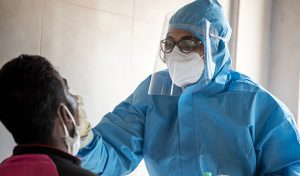
Collection of blood from Neonates ages 0 through 3 months, this must be done by an experienced phlebotomist or a pediatric nurse. Heel stick is the only acceptable manner of collection for laboratory personnel in this age group unless the infant’s weight is 21 pounds or greater than an arm draw can be performed.
Dr. Ashish Bajaj , M.B.B.S., M.D. in Clinical Pharmacology and Toxicology
We take the sacred duty of helping with the diagnosis and management of diseases by sample collection seriously. Every guideline pertaining to both COVID-19 as well as general customer safety and prevention of sample contamination is willingly adopted.
Disclaimer: The information provided here is for educational/awareness purposes only and is not intended to be a substitute for medical treatment by a healthcare professional and should not be relied upon to diagnose or treat any medical condition. The reader should consult a registered medical practitioner to determine the appropriateness of the information and before consuming any medication. PharmEasy does not provide any guarantee or warranty (express or implied) regarding the accuracy, adequacy, completeness, legality, reliability or usefulness of the information; and disclaims any liability arising thereof.
Links and product recommendations in the information provided here are advertisements of third-party products available on the website. PharmEasy does not make any representation on the accuracy or suitability of such products/services. Advertisements do not influence the editorial decisions or content. The information in this blog is subject to change without notice. The authors and administrators reserve the right to modify, add, or remove content without notification. It is your responsibility to review this disclaimer regularly for any change
Every other day, scientists and doctors are uncovering new facts about the novel coronavirus. The pandemic has affected everyone in different ways- financially, health-wise and psychologically too. And we are all living in fear! Healthcare professionals and common people alike are doing everything they can to improve immunity in the hopes of reducing the case count of COVID-19 until a vaccine is ready.
In this context, some researchers have found a surprising link between Vitamin D and coronavirus. We have always known that Vitamin D is one of the most important nutrients and crucial for our bone and teeth health and can regulate phosphorus levels in the blood.
Read on to understand where Vitamin D features in the fight against COVID-19.
A study was conducted by researchers at UChicago Medicine. They looked into the Vitamin D levels of people who had contracted COVID-19. Their blood vitamin level had been measured almost a year before they fell ill with coronavirus. The discovery was shocking! Many of the patients had low Vitamin D levels. In fact, the researchers concluded that having insufficient Vitamin D increases the risk of catching COVID-19 by 2 times.
Currently, doctors believe that normal Vitamin D levels should be around 30ng/ml and certainly not lower than 25ng/ml. Vitamin D deficiency is highly prevalent in India with most studies suggesting that more than 40% of the population has inadequate Vitamin D. Some studies also report 80-90% prevalence. People in urban regions are more likely to have insufficient Vitamin D levels because we live our lives mostly indoors and hardly get the sun.
Vitamin D is closely associated with immunity. Vitamin D Receptor helps in the synthesis of immunity cells like B Cells, T Cells and Antigen Presenting Cells. This Vitamin can modulate these cells’ immunological responses.
It is already known that low levels of Vitamin D increase the chances of respiratory tract infections (comorbidity of COVID-19). Even before the invention of tuberculosis medicines, sunlight exposure was the chief therapy that could cure TB. Vitamin D supplements are prescribed by doctors as a treatment of many viral infections.
A weak immunity makes it easier for coronavirus to attach itself with the ACE2 receptors of the body and this makes the virus spread faster.
So according to doctors, sufficient Vitamin d levels are needed to reduce the severity of COVID-19 infection. They admit that more studies have to be conducted to figure out what dosage is needed and if the requirements are the same across the spectrum of the population.
Vitamins C, D, Zinc and melatonin are some of the essential ingredients which formed a part of treatment in a lot of Covid patients as they were shown to enhance covid recovery but without strong scientific background, caution is advised.
Dr. Ashish Bajaj , M.B.B.S., M.D. in Clinical Pharmacology and Toxicology
Now that doctors have said Vitamin D deficiency may make it likely to contract COVID-19, you need to increase your Vitamin D levels-
Vitamin D deficiency is widespread and yet it can easily be resolved. Take care of your health and observe the COVID-19 protocol. We will surely come out of this pandemic!
Disclaimer: The information provided here is for educational/awareness purposes only and is not intended to be a substitute for medical treatment by a healthcare professional and should not be relied upon to diagnose or treat any medical condition. The reader should consult a registered medical practitioner to determine the appropriateness of the information and before consuming any medication. PharmEasy does not provide any guarantee or warranty (express or implied) regarding the accuracy, adequacy, completeness, legality, reliability or usefulness of the information; and disclaims any liability arising thereof.
Links and product recommendations in the informationprovided here are advertisements of third-party products available on the website. PharmEasy does not make any representation on the accuracy or suitability of such products/services. Advertisements do not influence the editorial decisions or content. The information in this blog is subject to change without notice. The authors and administrators reserve the right to modify, add, or remove content without notification. It is your responsibility to review this disclaimer regularly for any change
Countries all over the world have been fighting against the novel coronavirus using preventive measures such as social distancing and lockdowns. After India being in lockdown for almost half a year, certain relaxations have gradually been implemented to resume economic activities.
Amidst the rising number of new cases daily, the first documented case of reinfection with Covid-19 was reported in a 33-year-old man in Hong Kong almost 4 ½ months after he recovered from his first infection. Closer to home, recently there have been reports of reinfection cases in Bangalore, Delhi and Mumbai, especially amongst healthcare workers. Researchers in India have also reported few cases with asymptomatic reinfection of Covid-19.
In simple words, reinfection means that a person was infected once, cleared the infection and then the person was infected again.
Initial evidence suggests that normally, in case of an infection, the COVID Immunoglobulin G (IgG) antibody is tested positive after 2-3 weeks of the infection. However, in certain cases, the antibody tests negative, which means that the person does not develop immunity after infection. Another possibility could be that the antibodies are short-lived and disappear quickly, thereby making the patient susceptible to reinfection. Thus, reinfection cases mean that the antibodies may not be produced by every patient or if they do develop, they may not last long enough, and therefore, allowing the virus to enter the body and cause the disease again.
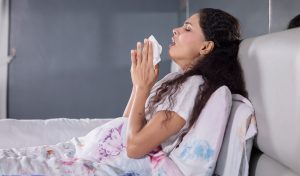
The World Health Organisation (WHO) has stated that there is currently no evidence that people, who have recovered from COVID-19 and have antibodies, are protected from a second infection.
Though the patient from Hong Kong experienced a cough, sore throat, fever and headache during his first infection, he was asymptomatic during his second infection. On the contrary, a 25-year-old man in the US developed breathing difficulties and pneumonia after getting re-infected with COVID-19, despite having only mild symptoms during his first infection.
Although there could be a chance that the virus was quite low enough to go undetected and appear negative on a test, only to increase and be picked up in the next test, the question arises as to whether the same virus has resurfaced again or is the current infection caused due to another viral event.
Determining reinfection is quite a challenging process. Genetic material gathered from the first and second swabs of the patient must be analyzed and sequenced by using genetic engineering. If there are differences that show up during sequencing, it means that reinfection has occurred. If the sequences match, then it means that there could be a relapse.
As of now, health officials in India are of the opinion that reinfection with COVID-19 is very rare. Observations till date have shown that only mild infections have occurred and therefore, this issue is not of serious concern now.
As per early-stage reports from vaccine clinical trials being conducted worldwide, the vaccine produces less immunity than an infection. There is still a lot of testing and data that is required in order to ascertain the level of immunity that the vaccine would provide. However, we may require booster doses in order to maintain immunity and avoid infection.

Read more about: Difference between Covaxin vs Covishield Vaccine
Herd immunity is based on the principle that a disease can be eradicated if most of the population is immune to it. With cases of reinfection being reported and confirmed, researchers are increasingly sceptical about achieving herd immunity since it may be impossible to achieve. Once again, more research is needed in order to confirm this fact.
Recovery from COVID-19 does not mean that you are immune to the disease. You should avoid getting complacent and continue maintaining hand hygiene, wearing masks and ensuring social distancing even after recovery.
Since COVID-19 is a relatively new disease, there is not much data available to understand the kind of long-term immunity that patients develop after they have recovered from the infection.
With respect to the novel coronavirus and COVID-19, a lot is still left to be learned. Research is still underway in order to understand various aspects of the disease and its threat of reinfection as well as the vaccine and immunity. In all cases, health officials have advised that the chances of reinfection are rare and not a cause of serious concern.
Is it right to take care of your health first? Yes! It is.
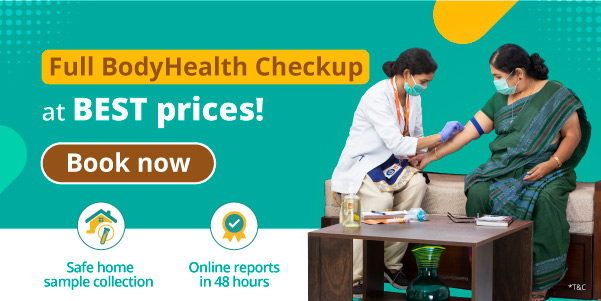
Disclaimer: The information provided here is for educational/awareness purposes only and is not intended to be a substitute for medical treatment by a healthcare professional and should not be relied upon to diagnose or treat any medical condition. The reader should consult a registered medical practitioner to determine the appropriateness of the information and before consuming any medication. PharmEasy does not provide any guarantee or warranty (express or implied) regarding the accuracy, adequacy, completeness, legality, reliability or usefulness of the information; and disclaims any liability arising thereof.
Links and product recommendations in the information provided here are advertisements of third-party products available on the website. PharmEasy does not make any representation on the accuracy or suitability of such products/services. Advertisements do not influence the editorial decisions or content. The information in this blog is subject to change without notice. The authors and administrators reserve the right to modify, add, or remove content without notification. It is your responsibility to review this disclaimer regularly for any changes.
COVID-19 shows no signs of going away. Even as the world tries, it’s best to come up with an effective vaccine, thousands continue to get infected every day and the death toll has reached horrifying heights.
In India, the pandemic has already affected nearly 5 million people. And as we all know by now, the best way to protect ourselves from the disease is to be familiar with the symptoms, seek treatment at the right time, and maintain personal hygiene and social distancing.
But what if you don’t recognize the symptoms? It is possible because new strains of the coronavirus are triggering signs that you would never associate with COVID-19. In this article, we will look at some of these uncommon COVID-19 symptoms.
Since the pandemic began way back in early 2020, healthcare professional across the world raised awareness regarding the most prominent symptoms that the virus triggers which include-

Accordingly, when people noticed these symptoms in themselves or people they know, they would get tested.
But now, it has been discovered that coronavirus is giving rise to a new set of symptoms. And you need to be familiar with them, otherwise, you won’t even know that you have contracted COVID-19.
Doctors have known for long that the virus is evolving and new types or strains are emerging. With time, new data have emerged that point to the changing nature of the coronavirus.
The most surprising new symptoms that doctors have observed are chilblain-like toes or fingers in COVID-19 patients.
Chilblains usually affect your toes and feet when they are exposed to very cold air. The blood vessels get inflamed and the toes and fingers become swollen, red, and very itchy.
But now COVID-19 is also triggering chilblains and doctors are calling it COVID-toes. COVID-toes (can also affect fingers) are not just red and inflamed but may also be accompanied by pustules, blisters, and significant pain.
So far, medical experts have noticed that COVID-toes show up once the infection has progressed and are more common in children than adults.
In fact, many cases of COVID-19 have been diagnosed because the doctors saw chilblains in the patients and recommended a COVID test.
New cases of COVID-19 have shed light on many unexpected symptoms of this disease. Doctors still do not know why COVID-19 might trigger them. But recently, some patients with coronavirus have shown these signs-
It is very difficult to predict what new symptoms COVID-19 will present. The disease is unpredictable and doctors still have a lot to learn. That is why we all need to be cautious. If you are feeling even slightly unwell, or witness any new symptoms, speak with a medical expert. It could be something harmless or it could be COVID-19.
Until a vaccine is invented, stay home as much as possible. And when you go out, observe the COVID-19 protocol. That is the only way to keep yourself and everyone safe.
Disclaimer: The information provided here is for educational/awareness purposes only and is not intended to be a substitute for medical treatment by a healthcare professional and should not be relied upon to diagnose or treat any medical condition. The reader should consult a registered medical practitioner to determine the appropriateness of the information and before consuming any medication. PharmEasy does not provide any guarantee or warranty (express or implied) regarding the accuracy, adequacy, completeness, legality, reliability or usefulness of the information; and disclaims any liability arising thereof.
Links and product recommendations in the information provided here are advertisements of third-party products available on the website. PharmEasy does not make any representation on the accuracy or suitability of such products/services. Advertisements do not influence the editorial decisions or content. The information in this blog is subject to change without notice. The authors and administrators reserve the right to modify, add, or remove content without notification. It is your responsibility to review this disclaimer regularly for any changes.
Are you doing everything you can to keep your loved ones and yourself safe from COVID-19? You may be sanitizing your hands, wearing masks, washing all the clothes you wore outside, and disinfecting your fruits and vegetables, but you may have missed something. During this pandemic, there is nothing called ‘enough safety’. Even a small mistake can have serious consequences.
Have you considered cleaning the inside of your car? Do you know that you may get the infection from your 4-wheeler? How? And what should you do about it? Read on to find out.
Ever since the lockdown was lifted and many offices have reopened all across India, thousands of cars are back on the streets again. But unlike the pre-coronavirus days, more cars mean not just more pollution but also a greater risk of COVID-19 infection.
In a global pandemic like the current coronavirus situation, our cars are a bit like microbial prisons. Soap interacts with viruses in much the same way it does oils: it breaks them down. So a simple soap scrub will annihilate any viruses in your car.
Dr. M.G. Kartheeka, MBBS, MD
The inside of your car has surfaces on which the coronavirus can survive. Consider the steering wheel, clutch, seats, door handles, knobs or even windows. These are flat and smooth surfaces that are high-contact. That means we touch these surfaces often. According to microbiologists, the coronavirus can live on smooth surfaces for up to 72 hours.
Suppose you enter the car and touch these surfaces with unwashed hands. Then, the virus is present on your hands will be transferred to the surface. Since most of us use the car AC and keep the windows rolled up, the virus will continue to be inside the car. Now, whoever is travelling by that car will touch the same infected surface or breathe in the air in which the virus is suspended. This will infect them and you.
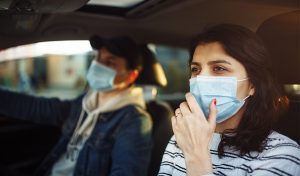
The outside of the car is considerably safer as the sunlight, rain and wind can clean it. So you need to focus on the inside of the car. Here are a few tips to disinfect your car interior-
1. Make a list of the high-contact surfaces. This includes all the nooks and crevices, the buttons of the dashboard, the AC vent, the central console, the steering wheel, the clutch, the doorknobs, the windows and the seats.
2. To disinfect these surfaces, you will need a cleaning solution. You can always purchase car-cleaning disinfectants. They are atomizer bottles and you will simply spray the liquid onto the surfaces. But you can also use rubbing alcohol, dishwashing liquid soap or sodium hypochlorite solution.
3. You will need small clean towels or you can also purchase disinfecting wipes.
4. If you have not cleaned your car in a long time, consider vacuuming your car interior first to draw out the dirt, dust, fungi dead skin cells and pet fur (if you travel with dogs/cats).
5. Then spray the disinfecting solution onto the high-contact areas or dip your cleaning towel into the solution and wipe everything down thoroughly. Do not forget the often-forgotten places like cup-holders, roof handles, seat belt sockets and seat belts.
6. Keep changing the towels/wipes. Do not continue with a towel once it looks dirty.
7. Take out the car floor mats and wash and scrub them with soap and water.
8. If you have a window glass cleaner for your home, you can use that to wash your car windows and windshield as well. Use a paper towel or flannel cloth to wipe the windows dry.
9. For your car seats, you will need special upholstery or leather cleaner. Or you can use a home-made solution of 1/4th cup of baking soda in a cup of warm water. With a gentle brush and your cleaning solution, scrub the surface of the seats and keep your car doors open to let the seats dry up.
10. If you haven’t cleaned your car AC duct, get the AC serviced by professionals who will also disinfect the vent.
Finally, to maintain car hygiene, always keep a bottle of hand sanitizer in the car and use it frequently. Moreover, continue to wear a mask in the car.
Now that you know what needs to be done, grab those cleaning solutions and towels and disinfect your car right away to stay safe from COVID-19!
Disclaimer: The information provided here is for educational/awareness purposes only and is not intended to be a substitute for medical treatment by a healthcare professional and should not be relied upon to diagnose or treat any medical condition. The reader should consult a registered medical practitioner to determine the appropriateness of the information before consuming any medication. PharmEasy does not provide any guarantee or warranty (express or implied) regarding the accuracy, adequacy, completeness, legality, reliability, or usefulness of the information; and disclaims any liability arising thereof.
Links and product recommendations in the information provided here are advertisements of third-party products available on the website. PharmEasy does not make any representation of the accuracy or suitability of such products/services. Advertisements do not influence the editorial decisions or content. The information in this blog is subject to change without notice. The authors and administrators reserve the right to modify, add, or remove content without notification. It is your responsibility to review this disclaimer regularly for any changes.
Our lives have changed all because of a virus. This pandemic has gripped the whole world and has claimed over 8.5 Lakh lives. Millions are infected. In India too, people are worried and scientists and governments are doing everything possible to keep everyone safe.
All International health organizations, including ones in India, have said that wearing a mask is one of the truly effective ways of halting the pandemic. In India, it is mandatory to wear a mask when you step out. A mask prevents respiratory particles containing the COVID-19 virus from an infected person from escaping into the air when he/she coughs or sneezes. Thus, if an infected person wears a mask, other healthy people will not catch the disease. Similarly, when a healthy person wears a mask, it acts as a wall of defence against the virus that is floating in the air.
You are not alone. We wear it to save our lives but let’s face it, it’s not very comfortable & gives some people rashes too! If you are in a hurry and your heart rate has gone up, the mask can make breathing slightly difficult and it also fogs up our glasses. But what if we told you that you may not have to wear those masks for much longer? Let’s find out what the experts are saying.

N95 respirators offer a higher level of filtration than cloth, surgical or procedural masks as N95 masks have the capability of filtering more than 95 % of the infectious elements.
Dr. Ashish Bajaj, M.B.B.S., M.D. in Clinical Pharmacology and Toxicology
Once upon a time, the common cold and flu used to claim thousands of lives. In fact, the Spanish flu killed at least 14 million people in India. But people dying of the flu is unthinkable today, right? Why? Because in the last century, medicinal science has made immense progress. When someone catches a cold or viral fever or the flu, some medicines can bring down the temperature, rehydrate the body and ease the symptoms. Then there are flu shots and pneumonia shots that ensure that even if you do get the flu, the infection does not enter your lungs and make your condition worse.
So what does this mean for coronavirus? Scientists feel that the COVID-19 virus is like the influenza virus. It can never be eliminated. The coronavirus will stay with us. As it is, several new strains of it are developing.
But do not be alarmed. Even if coronavirus cannot be destroyed like smallpox or polio, we can combat it. And those inconvenient masks may soon be a thing of history.
There are pros and cons of wearing a mask after covid ends for example, if continuous mask-wearing reduced exposure to routine pathogens enough that some kids were not exposed to common viruses or bacteria until later in life. For certain diseases that strike kids harder than adults, that delay could be beneficial, even lifesaving. But it could also alter the way kids naturally build immunity to certain pathogens over time. But at last prevention is always better than cure.
Dr. M.G. Kartheeka, MBBS, MD(Pediatrics)
Researchers from the University of Texas feel that masks and other COVID-19 precautions like social distancing will gradually not be needed in 2 years. Can’t believe it? Scientists give 2 reasons to back up their claim-
Herd immunity means immunity of the whole population. As you know, many countries are racing to find a vaccine that is effective against coronavirus. In fact, 2 of India’s vaccines are in the human trial phase and may be ready very soon. The USA, Britain, Germany and Russia too have made immense progress with their vaccines. According to the BBC, scientists believe that the world will have COVID-19 vaccines by the middle of 2021- just a year from now! Once you are vaccinated, your body’s immune system will produce antibodies that can destroy the coronavirus.
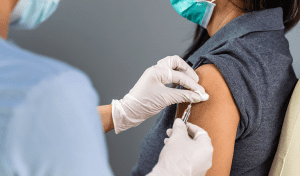
Scientists know that once you contract COVID-19 and recover from it, your immunity becomes tough. The antibodies your lymphocytes (immunity cells) produced to kill the coronavirus remain in your blood and protect you from another COVID-19 infection. A huge number of people all over the world have been infected, so it is possible that they will be safe from COVID-19.
So this means that in 2 years, there will be no need to wear masks or maintain social distancing. Most people will not be contracting the virus. And even if you do, it will be as harmless as a common cold and with medicine and rest you will be fine.
In the meantime, continue to wear masks at all times outside the house. Stay home, go out only when necessary and maintain 6 feet of distance from others.
Disclaimer: The information provided here is for educational/awareness purposes only and is not intended to be a substitute for medical treatment by a healthcare professional and should not be relied upon to diagnose or treat any medical condition. The reader should consult a registered medical practitioner to determine the appropriateness of the information and before consuming any medication. PharmEasy does not provide any guarantee or warranty (express or implied) regarding the accuracy, adequacy, completeness, legality, reliability or usefulness of the information; and disclaims any liability arising thereof.
Links and product recommendations in the information provided here are advertisements of third-party products available on the website. PharmEasy does not make any representation on the accuracy or suitability of such products/services. Advertisements do not influence the editorial decisions or content. The information in this blog is subject to change without notice. The authors and administrators reserve the right to modify, add, or remove content without notification. It is your responsibility to review this disclaimer regularly for any changes.
Next Page »« Previous Page